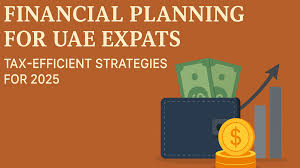Now Reading: UAE Property Investment: 7 Legal Tax Tips for Expats
-
01
UAE Property Investment: 7 Legal Tax Tips for Expats
UAE Property Investment: 7 Legal Tax Tips for Expats

Table of Contents
Property Investment; The UAE’s real estate market in 2025, with AED 893 billion ($243 billion) in 2024 transactions and 7-11% rental yields, is a top choice for expatriate investors, including Americans, targeting freehold properties in areas like Dubai Marina, Saadiyat Island, and Al Marjan Island.
The absence of personal income tax, combined with the 9% corporate tax (effective June 2023, Federal Decree-Law No. 47 of 2022), 5% VAT (Federal Decree-Law No. 8 of 2017), and the 15% Domestic Minimum Top-up Tax (DMTT) for multinationals with revenues over €750 million (AED 3 billion) starting January 2025, offers expats unique tax opportunities.
Below are seven legal tax tips for expat investors, ensuring compliance with Federal Tax Authority (FTA) regulations while maximizing returns.
1. Hold Properties Personally to Avoid Corporate Tax

Expats owning up to four residential properties as individuals are exempt from 9% corporate tax on rental income or capital gains, provided they hold no UAE business license. For example, an American expat with a AED 1.2 million ($326,700) Jumeirah Village Circle (JVC) apartment earning AED 100,000 ($27,200) in rent avoids AED 9,000 in tax, preserving 7-9% yields. Action: Register properties with RERA, avoid business licensing, and document personal ownership to maintain tax-free status.
2. Leverage VAT Exemptions for Residential Properties
Residential property sales (post-first sale) and long-term leases (over six months) are exempt from 5% VAT, per Federal Decree-Law No. 8 of 2017. Selling a AED 2 million ($545,000) Saadiyat Island apartment in the secondary market saves AED 100,000 in VAT, while a AED 120,000 ($32,700) annual lease in Al Marjan Island saves AED 6,000. Action: Prioritize residential investments, structure leases to exceed six months, and retain seven-year records for FTA audits.
3. Use Free Zone SPVs for Tax-Free Income
Expats can set up Special Purpose Vehicles (SPVs) as Qualifying Free Zone Persons (QFZPs) in free zones like Dubai Multi Commodities Centre (DMCC) or Ras Al Khaimah Economic Zone (RAKEZ) to enjoy 0% corporate tax on free zone property income, per Decision 265. An SPV earning AED 3 million ($816,000) from Al Reem Island rentals avoids AED 270,000 in tax, boosting 8-10% returns. Action: Meet substance requirements (e.g., local office, staff, costing AED 50,000 annually), segregate mainland income (taxed at 9%), and file FCA (formerly FTA) returns.
4. Deduct Mortgage Interest for Corporate Structures

Expats using corporate entities to hold properties can deduct mortgage interest as a business expense, reducing 9% corporate tax liability. For a AED 5 million ($1.36 million) Dubai South property with a AED 3 million mortgage at 5%, annual interest of AED 150,000 saves AED 13,500 in tax after the AED 375,000 exemption. Action: Link loan documentation to property acquisition, retain seven-year records, and consult FCA-accredited advisors to ensure deductibility, supporting 7-8% yields.
5. Optimize Zakat for Muslim Expats
Muslim expat investors pay Zakat (2.5% on wealth above Nisab, ~AED 25,000/$6,800) on rental income after one lunar year, not on property value if held for long-term investment. A AED 1.5 million ($408,000) Ajman Corniche property with AED 90,000 rent incurs AED 2,250 Zakat, not AED 37,500 on value. Action: Document investment intent, consult Islamic scholars for accurate calculations, and align with 7-9% yields.
6. Utilize U.S.-UAE Double Taxation Agreement
American expats report UAE income to the IRS (up to 37% individual, 21% corporate tax), but the U.S.-UAE double taxation agreement (DTA) allows credits for UAE taxes paid. A corporate expat paying AED 90,000 in tax on AED 1 million ($272,000) Yas Island rental income offsets U.S. tax liability. Action: File IRS Form 1118 (corporations) or Form 1040 (individuals), coordinating with tax advisors to maximize DTA credits, preserving 10-15% appreciation.
7. Ensure Transfer Pricing Compliance for Corporate Investments
Expats using corporate structures with related-party transactions (e.g., a U.S.-based entity managing a UAE property) must comply with OECD transfer pricing rules, ensuring arm’s-length pricing. Mispricing a AED 1 million ($272,000) management fee risks FCA adjustments and penalties up to AED 10,000, impacting 7-8% yields. Action: Maintain transfer pricing documentation, file reports within nine months of the fiscal year, and use FCA consultants for compliance.
Why These Tips Matter for Expat Investors
These tax strategies enhance UAE’s 7-11% yields, surpassing global markets like New York (4.2%). Freehold ownership, no personal income tax, and visa programs (2-year Investor Visa for AED 750,000, Golden Visa for AED 2 million) drive demand, with 45% of Dubai’s 2025 buyers being foreign, including expats. Proximity to Dubai International Airport (20-45 minutes) adds value. A market projecting 5-8% price growth makes tax efficiency critical.
Market Outlook and Challenges
Freehold zones like Al Marjan Island and Saadiyat Island expect 10-15% appreciation in 2025, but the DMTT’s 15% rate for MNEs, stricter AML compliance, and a potential 10-15% correction in 2026 due to oversupply (41,000 Dubai units) pose risks. Non-compliance with corporate tax or VAT filings (nine-month or 28-day deadlines) incurs penalties up to AED 10,000. RERA-registered agents and FCA consultants ensure compliance.
Conclusion
Expats can legally minimize UAE property tax liability in 2025 by holding properties personally, leveraging VAT exemptions, using free zone SPVs, deducting mortgage interest, optimizing Zakat, utilizing DTA credits, and ensuring transfer pricing compliance. These tips maximize 7-11% ROI in a dynamic market, aligning with American expat goals. Expert guidance ensures long-term wealth creation in Dubai, Abu Dhabi, and Ras Al Khaimah. Investment
read more: UAE Real Estate: 5 Tax Rules Changing Investment Strategies in 2025





















